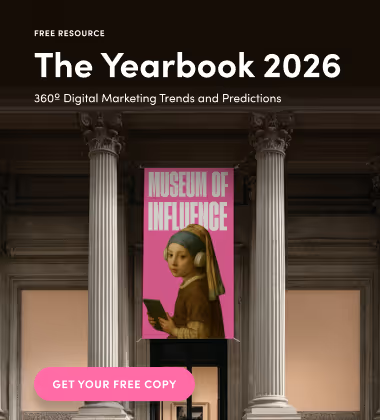For new mothers, expecting mothers, people trying to conceive, and those dealing with infertility and loss, the journey towards parenthood can be both exciting and challenging.
While friends and family can offer support, sometimes it's hard to find people who truly understand what you're going through.
This is where online communities can be invaluable. These digital spaces provide a supportive network of individuals who share similar experiences, offer advice, and provide a sense of belonging.
I spoke with Krystle Ng-A-Mann (@dineandfash), a full-time content creator and lawyer who has built a community through her blog and social media platforms around fashion, food, travel, and other lifestyle content. Recently, Krystle has shared her fertility journey online to offer guidance and support to those navigating their own challenges with conceiving and the road to parenthood.
In this article, we explore the importance of online communities for these individuals and how Krystle has used her platform to provide a space for connection and understanding.

An Interview With Krystle Ng-A-Mann
Danielle: How do online communities for moms and folks trying to conceive offer support and validation that traditional support systems, such as family and friends, may not be able to provide?
Krystle: Online communities are filled with other people in the same boat and who therefore ‘get it’. Unfortunately, a lot of traditional support systems don’t act as a support at all. Friends and family members may bring a lot of judgment and unsolicited advice to the conversation and are usually ignorant and uninformed. Most times, they are well-intentioned. But they may be uncomfortable discussing these topics for a fear of not knowing what to say. This can be dangerous, as silence can be interpreted by those who are trying to conceive (TTC) or who have experienced loss as a lack of compassion. For the infertility and pregnancy loss community, there is a saying that it’s “the worst club, but with the best members” and that’s because the people who are a part of them automatically understand what you’re going through and offer compassion and support without judgment.
D: How have online communities helped break down barriers and create a sense of belonging among mothers, those who are TTC, and/or those who have experienced loss who may otherwise have felt isolated or excluded?
K: Online communities help break down barriers through sharing and normalizing topics that were once considered taboo, educating, and helping others who are in the same or similar position to feel less alone. Often, there are feelings of guilt, shame, and embarrassment that come along with this journey which cause those who are TTC or who have experienced loss to suffer in silence. Online communities help us to see ourselves reflected in other people’s stories, and to see just how common things like infertility and pregnancy loss are—with 1 in 6 couples in Canada experiencing infertility and 1 in 4 pregnancies ending in loss.
D: How have online communities for moms, those who are TTC, and/or those who have experienced loss been able to promote advocacy, activism, and social change in areas such as maternal health, parental leave policies, and child welfare?
K: Through awareness and education, online communities can garner support and promote social change. They can help to highlight inequities, and areas in which there is a lack of funding, benefits, and resources. Online communities encourage grassroots organizations to form—like charities, non-profits, and other organizations—in order to effect change at various levels.

D: With the rise of social media influencers and parenting bloggers, how have online communities for moms, moms-to-be, and aspiring parents impacted the way in which people consume information and make decisions about their child-rearing practices?
K: Online communities provide valuable information and education to those who are TTC or who have experienced loss, in terms of diet and lifestyle, exercise, healthcare, etc. Personally, I’ve come to learn that no single source (e.g. a fertility specialist) can give me all the information I need to optimize my fertility. Outside of traditional and academic sources of information, I’ve learned so many little nuggets from fertility podcasts, fertility accounts on Instagram, DM conversations, and even Facebook groups.
D: Can you share an example of how being part of an online community has helped you to overcome a specific challenge or problem related to parenthood or the TTC journey, and how did the community facilitate that process?
K: Through being a part of online communities and sharing my story, I’ve been able to obtain resources that have undoubtedly helped me along this journey, mentally and physically. I became connected with Day 1 Fertility which has helped so much in terms of mindset (managing mindset is one of the biggest parts of the journey). I also found all of the doctors and practitioners that are a part of my team online, including my current fertility clinic, my naturopath, and my TCM. In the same way that “it takes a village” to raise a child, it takes a village to bring one earthside. Had I not been tapped into these communities online, I wouldn’t have been able to align myself with amazing experts and practitioners that have all had a critical role in helping me reach my goal.
D: What do you see as the future of online communities for moms, those who are TTC, and/or those who have experienced loss and how do you anticipate these communities evolving to continue meeting the needs of people in the years to come?
K: What I hope to see is a greater understanding of the TTC and pregnancy loss community across the board. I feel these communities have typically been excluded from the conversation. For example, marketing efforts tend to be directed toward moms and families. But as we’ve been seeing for several years, people are delaying expanding their families and fertility is declining on a global level. So I hope with more and more people sharing online, it will not only help those who are struggling with these issues and invite them into the conversation but help everyone else to understand and see how common it is as well.

Finding Support and Understanding: The Power of Online Communities for Parents and Parents-to-Be
The power of online communities for new mothers, expecting mothers, people trying to conceive, and those dealing with infertility and loss cannot be overstated. Finding support and understanding in others who have gone through similar experiences can make all the difference in navigating the ups and downs of parenthood.
We are grateful to have spoken with Krystle Ng-A-Mann, who has created a welcoming and inclusive community for individuals on their own parenthood journeys. Her insight and dedication to supporting others are truly inspiring. Please follow her on social at @dineandfash and check out her blog of the same name.
To all those just starting their pregnancy journeys, in early motherhood, or having difficulty trying to conceive, know that you are not alone. There are communities of people out there who understand and are ready to support you every step of the way.



